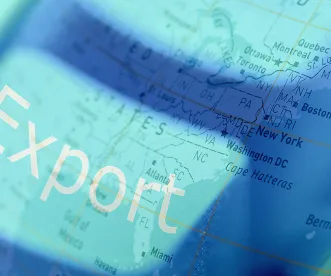Effective February 20, 2011, employers who are sponsoring employees in the immigration categories of H-1B, L-1 or O-1 (“foreign nationals”) must certify on Form I-129 that they will comply with federal “deemed export” rules. Comprised of regulations implemented by the Department of Commerce through its Export Administration Regulations (“EAR”) and the Department of State through its International Traffic in Arms Regulations (“ITAR”), deemed export rules restrict the release of designated controlled technology and technical data to foreign nationals.
The technology and technical data regulated by EAR and ITAR tend to have dual use, i.e. both civil and military applications, and tend to be subject to one or more control regimes, such as National Security, Nuclear Proliferation, Missile Technology, or Chemical and Biological Warfare. Such technology and technical data may take the form of blueprints, plans, diagrams, models, formulae, tables, engineering designs and specifications, photographs, manuals, or similar documentation.
Exempt from regulation are technology and technical data resulting from “fundamental research.” A large segment of research conducted at accredited U.S. institutions of higher education is considered “fundamental research,” which the EAR defines as “basic and applied research in science and engineering, where the resulting information is ordinarily published and shared broadly within the scientific community.” Additionally, educational information is not subject to the EAR if the information is released through courses and associated teaching laboratories of academic institutions.
A “deemed export” to a foreign national’s home country occurs when an employer “releases” designated controlled technology or technical data to a foreign national, whether the release takes place within or outside of the United States. Technology or technical data is considered released for export when it becomes available to a foreign national through visual inspection, oral exchange of information, or application of technology or technical data under the guidance of persons with personal knowledge of the technology or technical data.
An employer’s technology or technical data may be subject to export licensing and other restrictions, depending on the nature, destination, end user, and end use of the technology or technical data. Under the EAR and ITAR, employers must apply for an export license when the following conditions exist: (1) the employer intends to release controlled technology or technical data to a foreign national; and (2) release of the same technology or technical data to the foreign national’s home country would require an export license.
To ensure that “deemed exports” do not occur without the requisite authorization, United States Citizenship and Immigration Services requires employers to certify on the new Form I-129 that they have reviewed the EAR and ITAR regulations. Employers must also certify, with respect to the technology and technical data to which the H-1B, L-1 or O-1 foreign national will have access, that either (a) a license is not required to release such information to the foreign national; or (b) a license is required, and the employer will obtain the required license before releasing the technology and technical data to the foreign national.
Additional information about the EAR’s restrictions pertaining to the release of designated controlled technology and technical data to foreign nationals is available. Please click here to view this information.
Additional information about the ITAR’s restrictions pertaining to the release of designated controlled technology and technical data to foreign nationals is available. Please click here to view this information.





 />i
/>i
